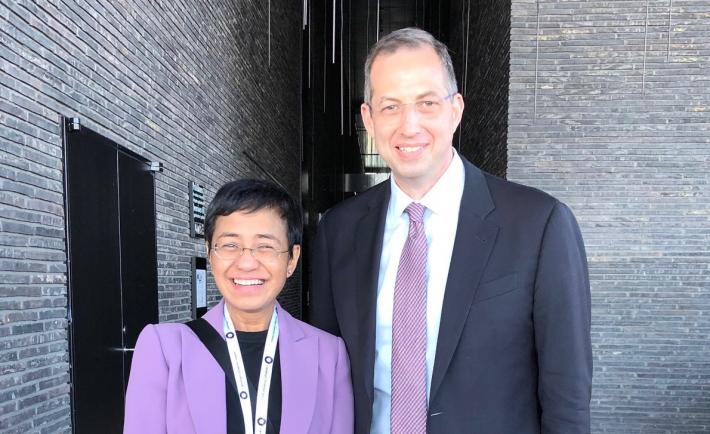
Derek Mitchell was joined by NDI partner Maria Ressa at the Copenhagen Democracy Summit to discuss topics such as the Design 4 Democracy Coalition.
In this episode of DemWorks, NDI president Derek Mitchell is joined by Maria Ressa to discuss both the opportunities and challenges that technology presents for democracy, the threat of disinformation and the ways that authoritarians are using technology for nefarious purposes.


---day-before-elections.png)